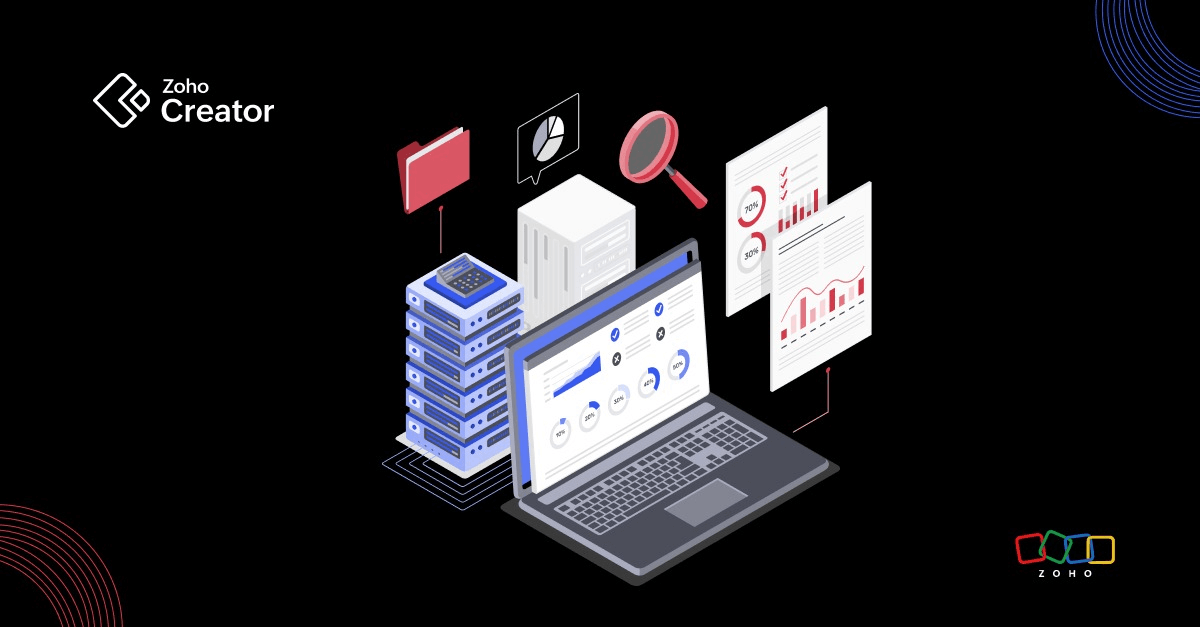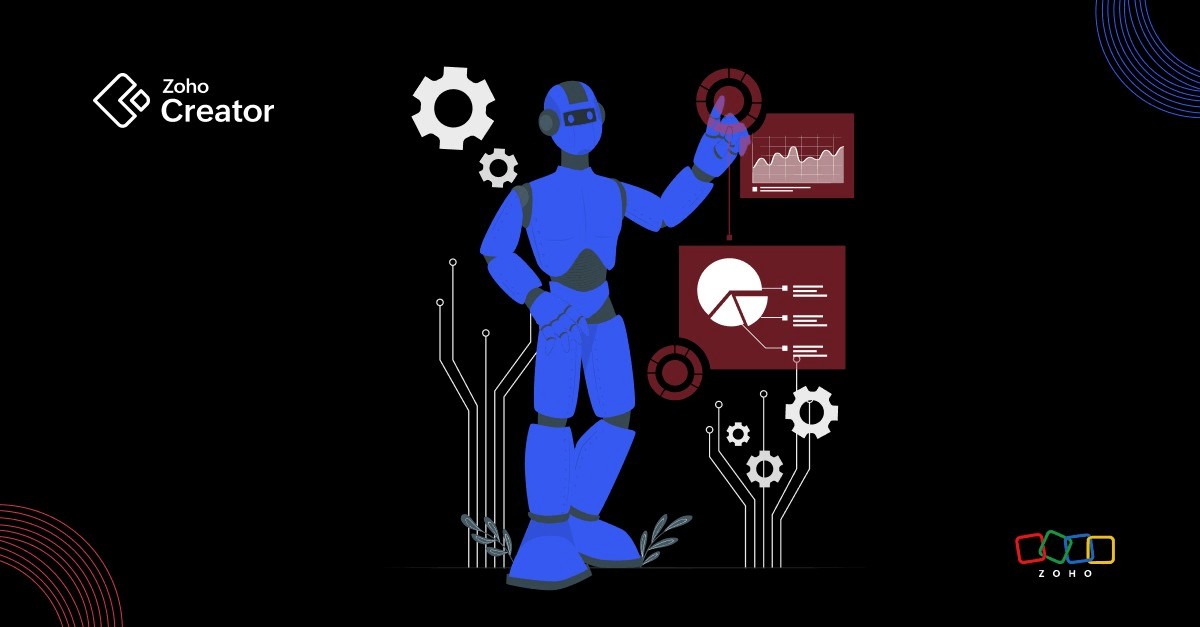- HOME
- Know Your Tech
- Low-code platforms (LCAPs) for building enterprise-ready apps
Low-code platforms (LCAPs) for building enterprise-ready apps
- Last Updated : April 20, 2023
- 981 Views
- 6 Min Read
It's the year 2022, and the pace of digital transformation at business enterprises continues to accelerate. The pandemic primed businesses to prepare for dramatic shifts in market dynamics and consumer demands. As a result, digital transformation initiatives in 2022 center around resilience, sustainability, automation, and the ability to pivot effectively with no ramifications to consumers.
As global businesses embark on digital journeys, software continues to play the lead role in delivering new business models to equip these enterprises for success. Enterprise application development makes digital transformation and innovation effortless with technology. Customized, feature-rich enterprise applications can impact and add value to every facet of a business, from customer services to employee collaboration. In the digital age, it's impossible to achieve business goals without an arsenal of enterprise applications to support business functions.
What is an enterprise application?
"Enterprise application" is a broad term that accommodates a wide array of business applications. Enterprise applications are software that companies use to create and carry out business functions like sales, marketing, support, logistics, and BI.
There are several tools in an enterprise's application deck, ranging from CRM systems to billing applications to ERP systems, often customized to suit the business's needs. The right tools allow companies to get the most out of data, provide automation to improve process efficiency, digitize data to reduce manual work, and increase the overall speed of operations. All the applications in an enterprise integrate and communicate with each other to create a large ecosystem that drives business processes.
When does an app become “enterprise-grade”?
Enterprise-grade apps are designed to process large amounts of corporate data and scale up to meet the organization's needs. Large organizations depend on powerful mission-critical enterprise apps (EAs) that are component-based, distributed, and deployed on various platforms. These EAs are developed using enterprise architecture frameworks that position the IT infrastructure to align with business goals. In a nutshell, enterprise applications are generally:
Easy to adopt and use
Low-maintenance, and easy to scale and upgrade
Compatible enough to integrate with the existing enterprise IT frameworks or support APIs for integration
Highly customizable to suit the needs of the enterprise and individual teams
Secure from data leaks, reliable data confidentiality with encryption, and role-based user access
Compliant with government or industry regulations and supports granular management of policies
Why low-code for enterprises?
Every enterprise needs a digital strategy that defines how technology should be implemented to support business goals and optimize workflows to drive value. Most digital initiatives would take multiple enterprise applications to drive and support. Due to this, many business leaders are looking for a faster means of development.
A development methodology that aligns well with enterprise digital transformation initiatives is low-code. Low-code application development platforms expedite the software development projects that drive an enterprise's digital strategy.
The need for enterprise low-code application development
Low-code platforms enable businesses to meet the high customer demand for new applications without overwhelming IT departments. Here are some of the most prominent benefits of using enterprise low-code application platforms:
Rapid prototyping of ideas and solutions for agile development
Low-code platforms allow business users to draft designs for enterprise solutions quickly and without programming expertise, which they can use to test and validate for development. Prototyping also helps developers collect user feedback to iterate for quality throughout development. This sort of user-centric development approach ensures your application not only delivers value, but also bridges design gaps in the development cycle.
Fosters hybrid development teams
Low-code development reduces the need to constantly hire new employees to counter developer shortage, and lets your business use the talents of the existing team. Application development teams working on a LCAP contain a hybrid of skilled developers, and business professionals with little to no coding experience. The business professionals collaborate with developers to help transform business ideas and objectives into applications that deliver business value.
Complex, powerful development on a simple interface
With low-code, enterprise users can create high-functioning applications at a much lower cost, without prior programming experience. Developers can access digital technology to create software with complex configurations and abilities, without depleting the budget.
Enhanced collaboration
Including the application's end users in the development process can help improve the application and fix issues more effectively. Business professionals can implement features that solve business objectives without depending on the IT team.
Legacy modernization with microservice applications
Enterprise IT teams can use LCAPs for in-house development to upgrade legacy systems like ERP, CRM, and more, without impacting business flow or getting tied up in new proprietary solutions. Low-code is a practical platform to build microservice-based components and translate legacy code into modern, agile applications. Incorporating a microservice-based architecture can replace legacy systems, and enable faster development and easier updates.
Reduce shadow IT
Shadow IT are applications that are purchased by employees without the knowledge of IT teams. Although easily accessible, these applications aren't properly vetted and therefore are vulnerable to cyberattacks, risking confidential data. Using low-code, employees can develop mission-critical applications while still being overseen by IT teams and meeting digital security protocols.
Secure applications
Access management is a primary concern for enterprises prioritizing security. On a low-code platform, you can build apps that support security features like SSO integrations, multi-factor authentication, in compliance with security standards. This means that your mission-critical applications can’t be accessed or modified without authentication, removing any gaps in your defenses.
The low-code revolution may be a win-win all around for enterprises looking to bring savings in time, money, and resources. Low-code interfaces enable business users with no coding experience to build applications using reusable functional building blocks and reduce IT team workloads by proactively creating their own solutions.
Collaborative app development for enterprises with low-code
An essential feature businesses look for in a development platform is collaborative app development. Enterprise IT departments, who are at the forefront of the development curve, are turning to collaborative app-building to design business apps, bringing in operations teams and business users.
By collaborating with end users for development, IT can build apps that meet business objectives and drive the organization forward. Enterprise low-code application platforms enable everyone involved in the development process to work in the same virtual space and use a shared language to facilitate communication.
If your organization has a long list of apps that your business users need, then you want to develop them as quickly as possible to meet demand. IT and business operations collaboration can help formulate a process for mobile app prioritization, focusing on the needs of business users.
The visual interface and minimal use of code on low-code platforms makes the app development process more accessible to nontechnical staff. Hence, there's transparency in collaborative work, as developers and business users can communicate without gaps in technical information.
Some common components of collaborative development systems are version control, cloud-based file storage, internal messaging, a workflow builder, file sharing, and third-party integrations.
Principles of enterprise low-code application development
Many organizations have prioritized LCAPs as an essential part of the enterprise technology stack. However, some organizations using low-code fail to reach their full development potential, and they continue to observe traditional development practices. To transform your enterprise with low-code, here are some principles that improve agility and deliver business outcomes:
Obtain business value quickly and turn concepts into applications faster with an incremental development process.
Use design thinking techniques, drawing on user understanding and feedback, to rapidly develop and iterate new and impactful solutions.
Include business users and stakeholders in the development process, encourage feedback, and test assumptions along the way to finding the right solution.
Keep business goals in the lead using a project plan and roadmap to keep development on track.
Educate the team on the low-code platform and business goals for the project at hand.
Design and build customizations and components for common reuse in other projects.
How are businesses using low-code?
Once the enterprise establishes best practices and aligns business goals with IT requirements, low-code development can be used to fulfil a range of opportunities. Here are some common low-code used cases:
Customer portals for customers to interact with the business, find services, get quotes, schedule work, and place orders
Adaptive, scalable line-of-business systems and apps to conduct everyday tasks, which can be migrated to single- or multi-cloud deployments like BPM
Digitized business processes, like gathering information, passing information and requests through the company's approval process, and integrating with conventional business systems
AI-powered intelligent apps that analyze data and predict outcomes
Microservice applications where the components can be developed, deployed, and maintained independently, which enables faster development and easier updates
Mobile- and customer-facing apps that deliver seamless experiences with native device access, offline data sync, and other mobile-optimized features
Legacy app modernization to combine the strength of old business applications with updated technology and software
The future of enterprise low-code app development
It's highly likely that enterprise low-code application development will continue to grow in the coming years. As low-code platforms evolve and add capabilities like automation and artificial intelligence, they'll be expected to help enterprises deal with growing consumer demands to build resilient, adaptable businesses.
 Rashmi Sasi
Rashmi SasiProduct marketer at Zoho Creator, where she researches and creates content about all things low-code. Writer by day, reader by night, into eclectic books and long sentences, sci-fi enthusiast, and novice painter. Dislikes character limits.



